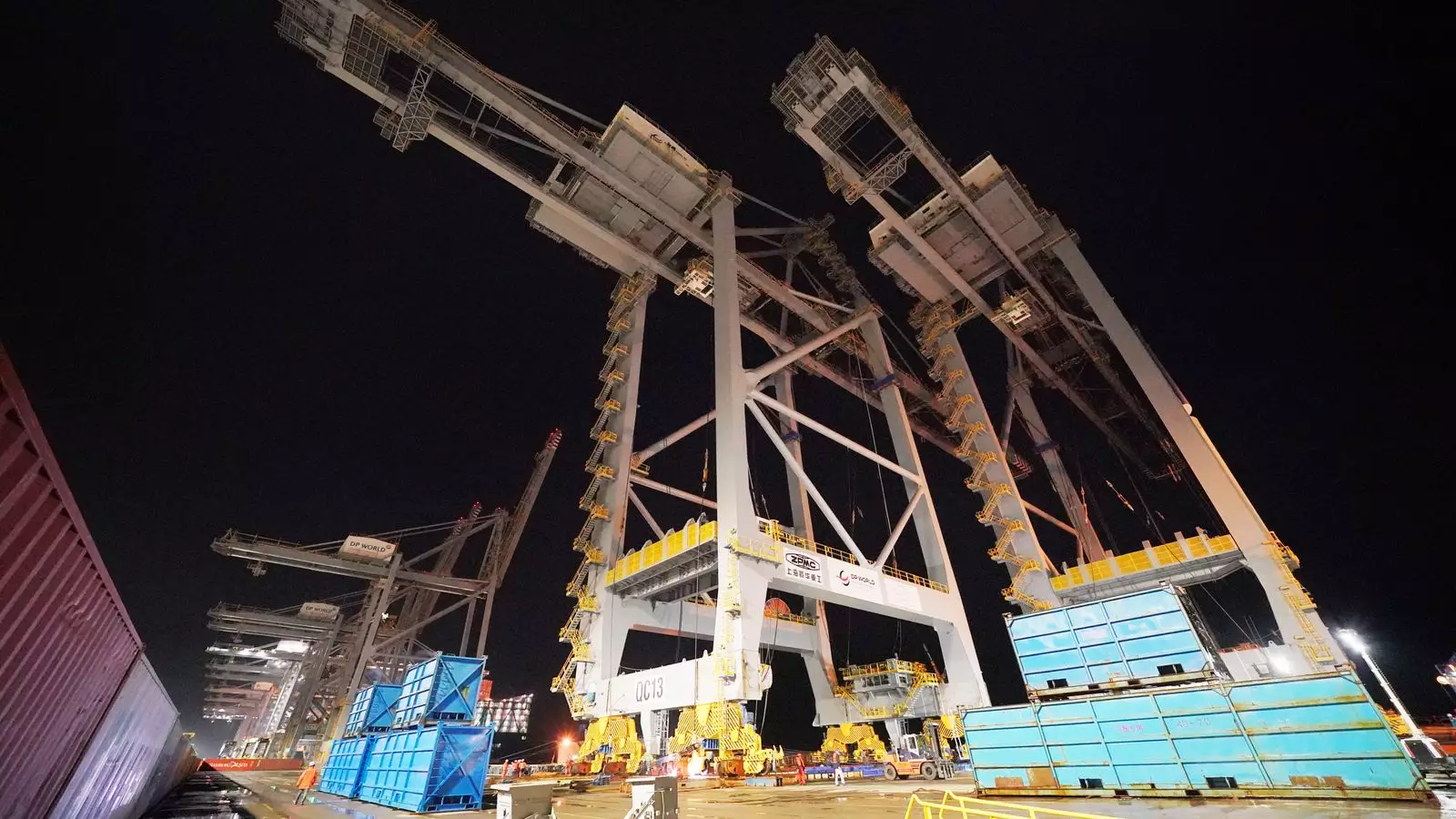The recent saga surrounding DP World’s £1 billion commitment to the London Gateway port serves as a stark reminder of the intricate and often fragile interplay between government decisions and corporate investments. This high-stakes negotiation highlighted how political discourse can have immediate and tangible repercussions on investment initiatives, reflecting the tension that often accompanies such monumental financial pledges. As key players in this scenario, government officials found themselves navigating a political landscape fraught with challenges, especially after damaging comments from the Transport Secretary.
DP World, a significant player in global logistics and the owner of P&O Ferries, was positioned to potentially revolutionize the UK’s port capabilities with its considerable financial investment. However, when the Transport Secretary Louise Haigh publicly labeled the company a “rogue operator,” she ignited a firestorm. Her remarks stemmed from the controversial decision by P&O to dismiss approximately 800 British seafarers in 2022, substituting them with lower-cost foreign workers—an act framed as essential for survival yet perceived as an egregious attack on domestic labor rights.
Such statements from a member of the cabinet threatened to destabilize the groundwork for the investment, exposing further the tightrope walk that government officials must perform between advocating for jobs and encouraging foreign investments. When Business and Trade Secretary Jonathan Reynolds mentioned the need for a “conversation” after the backlash, it underscored an urgent attempt to restore confidence and assure DP World that the government valued their contribution.
The immediate aftermath of Haigh’s comments illustrated a crucial challenge for the government: aligning the narrative and its policies amid a political environment where each comment can spark unforeseen ramifications. The investment summit, geared toward showcasing the UK as a prime destination for global investments, seemed at risk of overshadowing the government’s stability if a significant commitment was retracted. Reynolds’ evasive responses regarding Elon Musk’s absence from the summit further hinted at the precarious nature of their situation, where keeping everyone satisfied seemed an impossible balancing act.
While the question of why Musk, a major player in technology and innovation, was not at the summit has its own intrigue, it also resonated with the larger theme of missed opportunities. The government must navigate not just the current dynamics but also perceptions of who is welcome and why. Such optics matter, especially when attempting to convey a unified front in attracting investments while facing turbulent political currents.
Despite the surrounding chaos, DP World announced that clarity had been established through “constructive and positive discussions” with the government, ultimately allowing them to proceed with the investment commitment. This resolution signifies a potential turning point, reflecting that, despite intense political friction, dialogue can yield positive outcomes. The emphasis on the international investment summit demonstrated the government’s intent to leverage such commitments to reinvigorate the economy—an agenda that contradicts the blurred lines sowed by interdepartmental conflicts.
Moreover, hosting an event anticipated to attract 300 industry leaders underscores the government’s determination to foster a favorable investment climate in the UK. However, the timing of the summit becomes doubly significant as it precedes a critical government budget announcement scheduled for October 30. The ruling party’s pressure to hold this summit within a specific timeframe, partly stemming from promises made during their opposition phase, only complicates the situation further.
The wrangling over DP World’s investment encapsulates broader themes of governance, corporate strategy, and international relations that define the contemporary political landscape. The delicate balance between fostering a favorable investment environment while maintaining political integrity becomes an increasingly important narrative. As the UK grapples with the conditions of its post-Brexit economy, the interplay between investment commitments and political rhetoric will be critical in shaping its future. Only through effective mediation and clear communication can the government hope to attract opportunities without succumbing to self-inflicted wounds borne from political missteps. The challenges ahead will require strategic acumen and a united front to ensure that discussions, whether constructive or contentious, lead to lasting and beneficial outcomes.


Leave a Reply